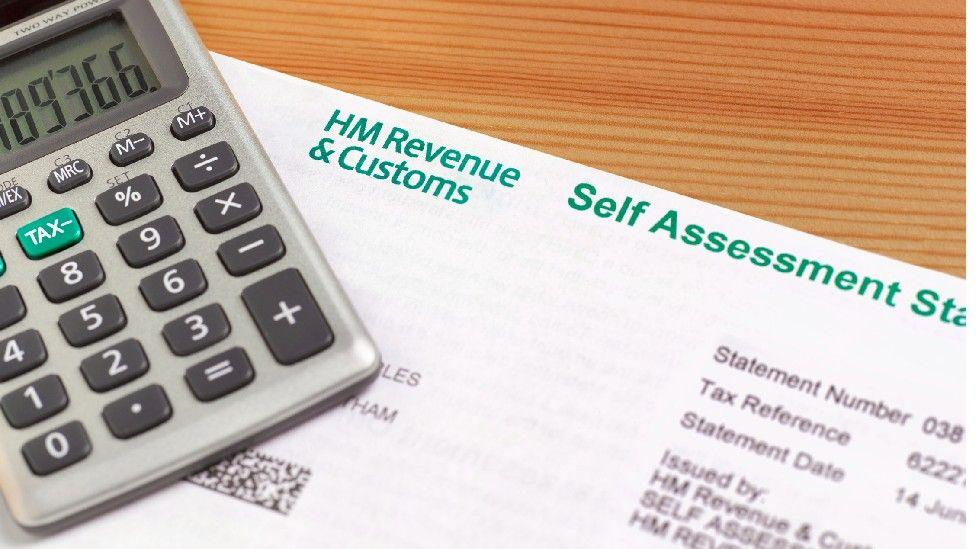Swinney vows to eradicate child poverty in Scotland
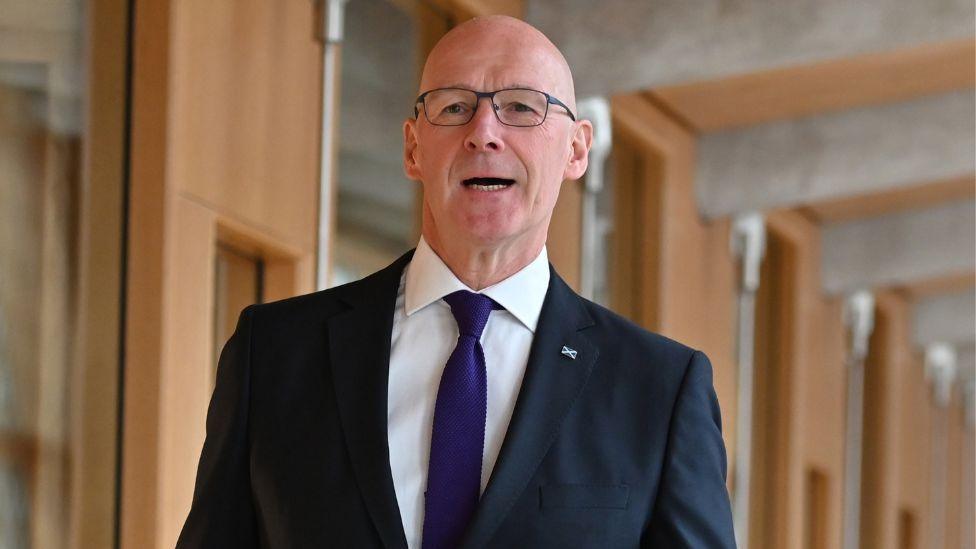
First Minister John Swinney outlined his government's plans in a speech to the Scottish Parliament
- Published
First Minister John Swinney has declared the eradication of child poverty as his "single most important objective".
The SNP leader also pledged to grow the economy, tackle the climate emergency and deliver better public services.
Leading a minority administration, he also emphasised the need for MSPs to work collaboratively as he set out his policy agenda at Holyrood.
Opposition parties criticised the SNP's record after 17 years in government.
Swinney warned 'significant' spending cuts may be needed
- Published21 May 2024
Swinney apologises to victims of blood scandal
- Published21 May 2024
Mr Swinney said he would reveal more details about his plans in a programme for government announcement before parliament's summer recess begins on 29 June.
Repeating comments he has made since succeeding Humza Yousaf earlier this month, the first minister warned Scotland was facing severe financial challenges.
He cited comments from Labour's shadow health secretary Wes Streeting, who said "all roads do lead to Westminster" when asked about the Welsh Labour government's management of the NHS.
Mr Swinney said Scotland's finances had been affected by inflation, Brexit and UK government austerity as he called for "Scotland to be able to chart her own course" as an independent nation in the EU.
Policy priorities
The first minister said child poverty "stands in the way of both social justice and economic growth".
He pledged £16m of investment over two years to expanding access to childcare facilities with six early adopter community projects - which he said support low-income families to enter and sustain employment.
Ministers have a statutory target to cut the number of children living in households in relative poverty to below 10% by 2030.
A Scottish government report, published in March, found on average about 240,000 children (24%) were living in relative poverty after housing costs, over the period from 2020 to 2023.
Mr Swinney told MSPs his government would "work to create growth, create jobs and to maximise the huge economic opportunities that lie ahead".
He added: "In modern Scotland it should not be a struggle to find fair work or to raise a family.
"So for me and for my government, eradicating child poverty and boosting economic growth go hand in hand."
To help the country reach its target to have net-zero carbon emissions by 2045, the SNP leader said the government would invest in green energy and infrastructure.
"In a modern prosperous Scotland we must invest in tacking the climate emergency in a way that created jobs and brings local businesses and communities with us," he said.
And on the government's fourth policy priority, improving public services, Mr Swinney vowed to lift educational performance, deliver sustainable social care by tackling delayed discharge, improve efficiency in the criminal justice system and to expand housing supply.
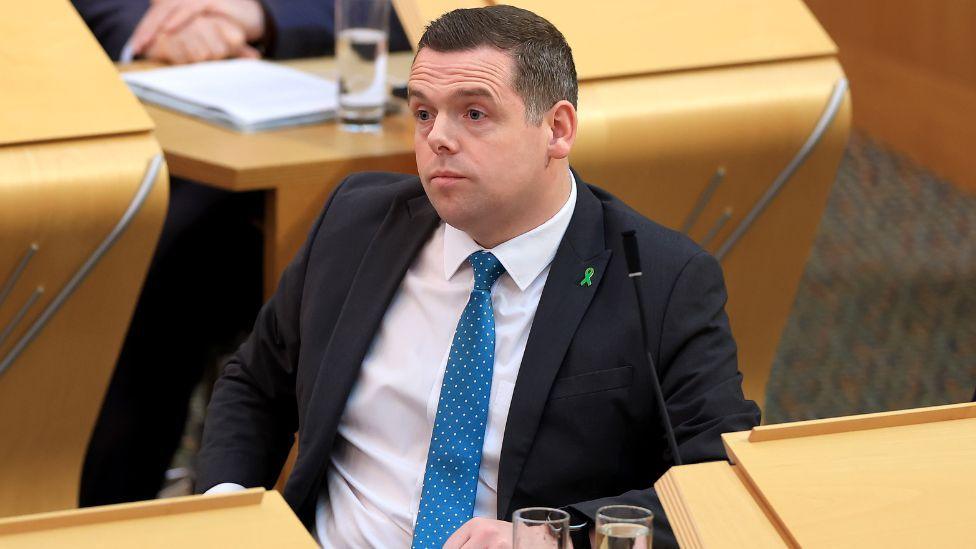
Scottish Tory leader Douglas Ross criticised the SNP's record in government
Scottish Conservative leader Douglas Ross said Mr Swinney's speech confirmed he was the "ultimate continuity candidate" and that SNP backbenchers "seem bored listening to more of the same".
He added: "The public’s priorities are ignored again in favour of the SNP’s obsession with separating Scotland from the rest of the United Kingdom.”
Scottish Labour leader Anas Sarwar said the government had failed to deliver economic growth, tackle child poverty and improve NHS performance.
He said the last 17 years of SNP government had "left every Scottish institution weaker".
Climate targets
In April, the Scottish government ditched its target of reducing greenhouse gas emissions by 75% by 2030 – a key part of climate goals billed as the "most ambitious in the world".
Net Zero Secretary Mairi McAllan said ministers remained "steadfastly" committed to reaching net zero by 2045.
Responding to the first minister’s speech, Greens co-leader Patrick Harvie said members of the SNP who had lobbied against ambitious climate targets had been "emboldened".
He called for Mr Swinney to commit to the "radical acceleration" of its climate ambitions.
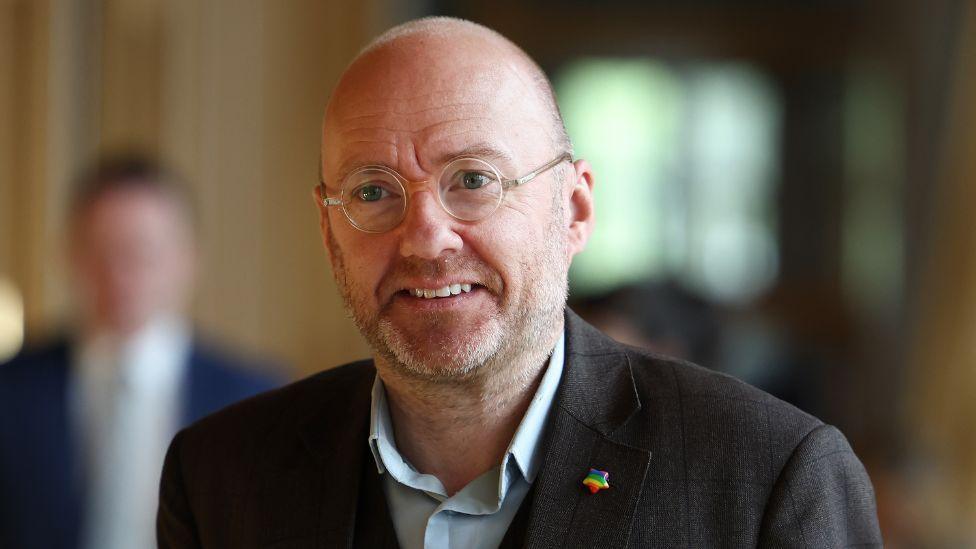
Patrick Harvie called on the government to speed up its response to the climate emergency
Alongside the programme for government, Mr Swinney said ministers would release a revised tax strategy and an infrastructure investment plan.
The government is also due to provide greater detail on its spending plans when it publishes its medium-term financial strategy.
The publication was delayed from 30 May to 20 June, with Finance Secretary Shona Robison arguing that was required to allow the new first minister time to "take a view" on the plans.
Finance committee convener Kenneth Gibson described the delay, external as unacceptable.
He said the committee, which would have little more than a week to scrutinise the document before the summer recess, was "deeply disappointed".
Mr Gibson has asked the government to bring forward the publication to 12 June.
On Tuesday, the House of Commons agreed to increase the limit the Scottish government can borrow to support public spending.
MPs agreed to raise the cap on borrowing by the devolved government in Edinburgh from Whitehall in London from £1.75bn to £1.78bn.
The amount the Scottish government can borrow on long-term projects, known as capital expenditure, has also risen from £3bn to £3.05bn.
- Published8 May 2024
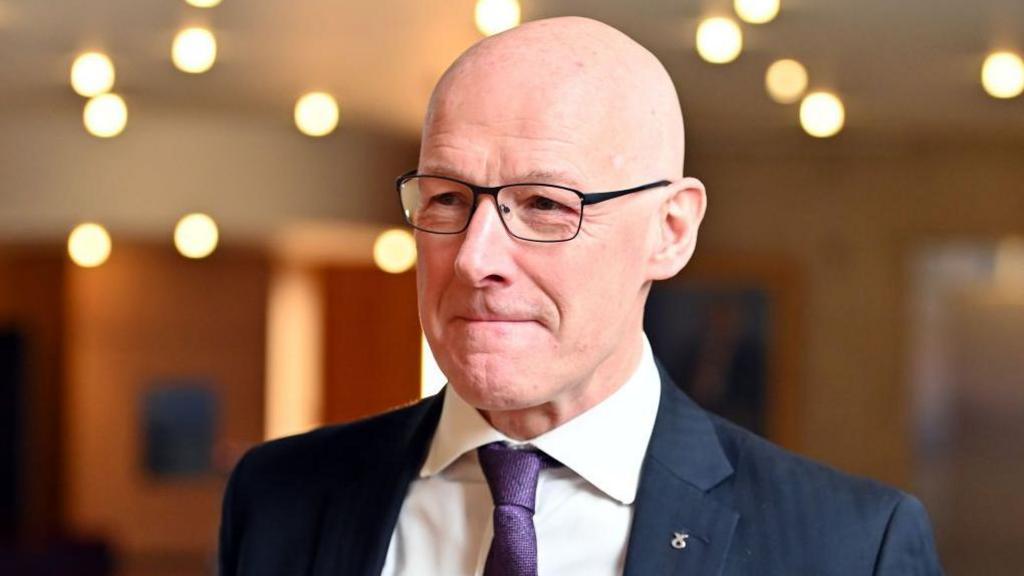
- Published6 April 2024
